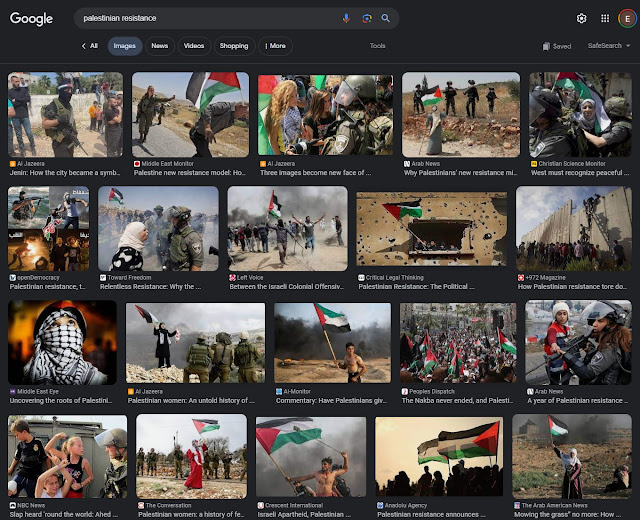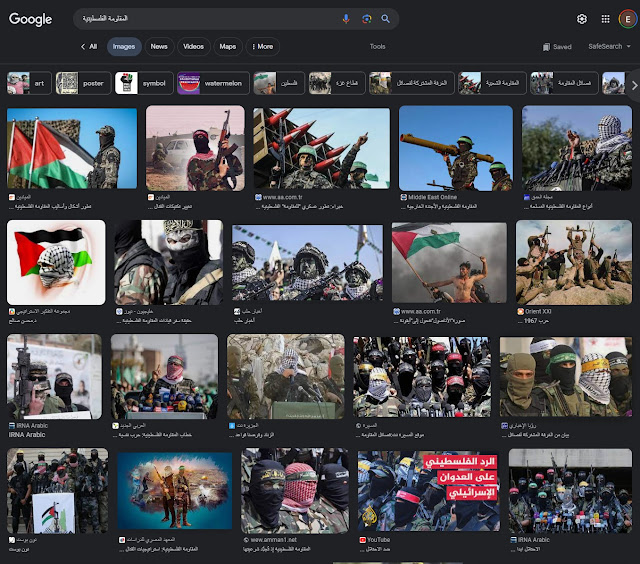Indeed, Palestinian propagandists love using the word "resistance." To Westerners, it is meant to evoke a mental picture of peaceful protests, often being violently attacked by thuggish uniformed forces.
But the word "resistance" means something entirely different to Palestinians.
A Google Image search for "Palestinian resistance" in English returns 19 out of the first 20 photos showing photos of Palestinian protesters, often confronting Israeli soldiers. Only one shows a Palestinian with a weapon.
But an identical search for المقاومة الفلسطينية, the Arabic translation of "Palestinian resistance," shows something entirely different:
19 out of the first 20 images show either members of militant groups or Palestinians with weapons.
In English, the phrase implies peaceful protest 95% of the time. In Arabic, the same phrase implies violent attacks 95% of the time.
Indeed, in Arabic, when the phrase is used by itself, it more often than not refers to Palestinian terror groups, which are called by default "Palestinian resistance."
One example: the abstract of this Arabic academic paper entitled "Palestinian resistance: stages of development and future prospects" doesn't even bother to define "resistance" to its Arab audience, but mentions that Palestinians themselves often use a different term for resistance: "armed struggle."
Even more pointedly, a search for "resistance operations" in Arabic - even without the word "Palestinian" - almost invariably refers to specifically Palestinian violence.
When Palestinians want to refer to non-violent protest they call it "popular resistance." "Resistance" by itself is understood to mean violence.
So Palestinians speaking to Western audiences know very well that they are using a term with a different meaning in English, so they can full-threadedly advocate "resistance" without fear that their fellow Palestinians would accuse them of abandoning terrorism as a tactic.




